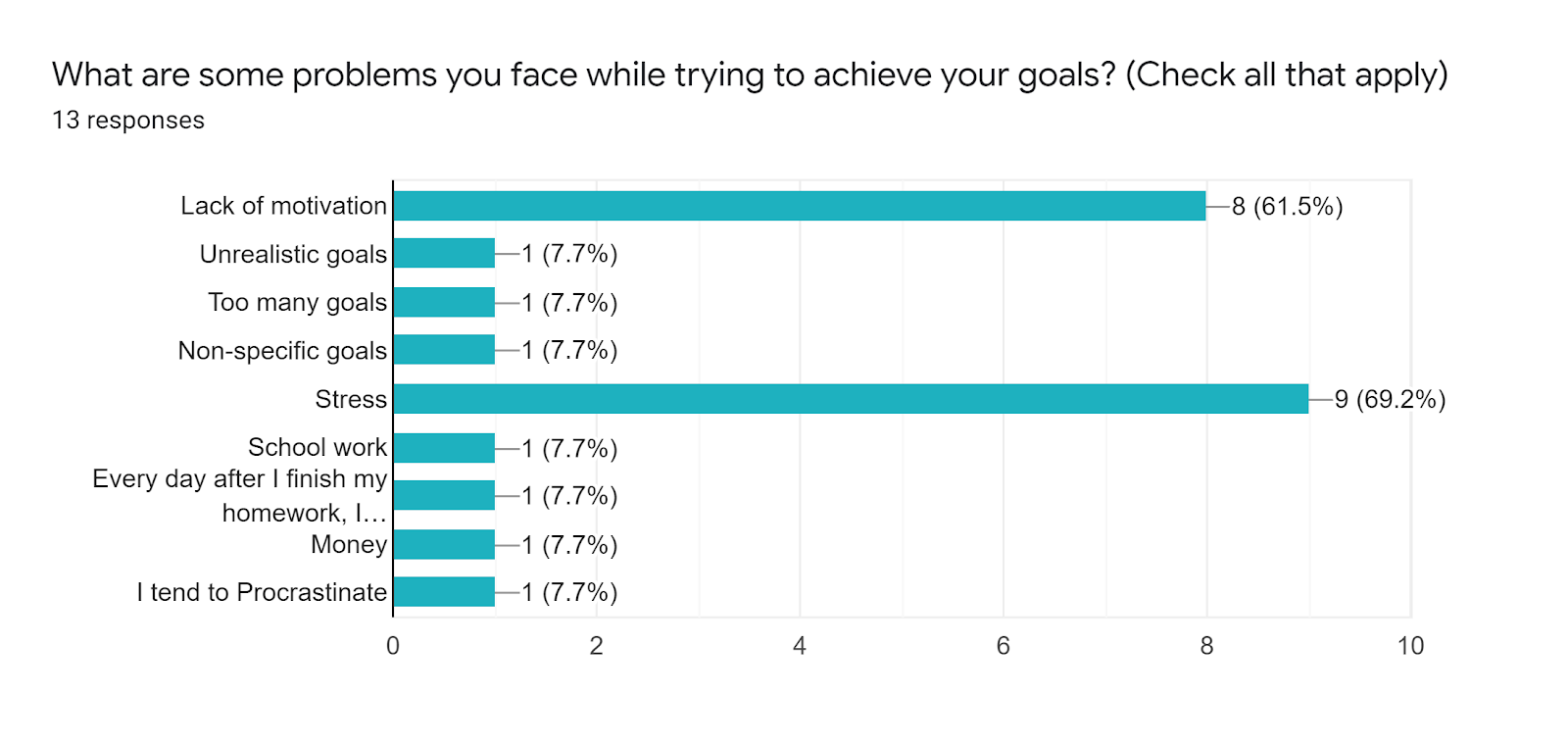 By Jessie Jin January is busy and stressful with midterms, the end of the marking period, and course selection. Yet at the same time, January is a redefining moment, a new beginning. This new year has so much potential and it is vital to start strong. Thus, goals, or in this case New Year’s resolutions, can help you roughly sketch out the new year. (Note that the tips discussed in this article can apply to all goals.) Making New Year’s resolutions is a yearly tradition that helps people reflect on the previous year and improve shortcomings. Often times, people (myself included) are motivated and confident the first few days after making the goal. However, by February many people lose motivation and forget about their goals. If New Year’s resolutions seem so short lived, why do we make them? Psychiatrist Dr. Glenn Miller cites tradition, self-improvement, and a desire to start. He believes that resolutions challenge us and open our mindsets. One study shows that 46 percent of people who wrote resolutions achieved their goals whereas only four percent of people achieved their goals without writing them down. To put things into perspective, I conducted a survey which thirteen ninth graders participated in. Among the ten students (77%) who previously made New Year’s Resolutions, three students (46%) achieved some of their goals. In the past, numerous students resolved to “eat healthier,” “exercise more,” and “get better grades.” As goals for 2020, four people cited time management or efficiency. Student Amber Li hoped “... [to create] an allotted time for each task before beginning anything” to be more time efficient. Freshman Jaden Wan indicated that, “I will study ahead of time for tests and make sure I understand the information taught” to achieve better grades. In regards to sleep, one student remarked that to get more sleep and rest, “I’ll try to get off my phone at a reasonable hour. I could create a routine before sleeping.” Since resolutions are unique to you, you may face different challenges to achieve them. However, we can analyze common trends to determine the greatest pitfalls and how to avoid them. In the survey mentioned above, stress and lack of motivation were the most common problems, as nine and eight people cited them, respectively. Fortunately, we can alleviate those problems. Psychologist Jelena Kecmanovic offers science-based tips to keep resolutions. First, you should figure out what you value and honor those values. If you enjoy doing something, you will work hard and not lose motivation. Next, you can change your environment to avoid temptations that will prevent you from achieving your goals. A classic example is to put away your phone if you want a good night’s sleep. In addition, you can adapt to change by using a gradual approach to reach your goals because drastic changes can be overwhelming. For example, if you wanted to save thirty dollars a week, you could start by saving a few dollars a week and then work your way up to save more money. But most importantly, remember to stay positive. You will encounter setbacks, but never be bogged down with failure. Remember Winston Churchill’s wisdom that “[s]uccess is not final, failure is not fatal: it is the courage to continue that counts.” Rather than fearing failure, we should learn from failure to lead us to success. Indeed, you may face obstacles, but never lose hope. If you do what you are passionate about and endure trials, your actions will become habits. Then you will achieve your goals as easily as breathing.
0 Comments
Your comment will be posted after it is approved.
Leave a Reply. |
Archives
February 2022
Categories |

 RSS Feed
RSS Feed
